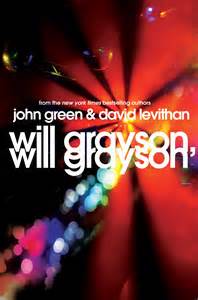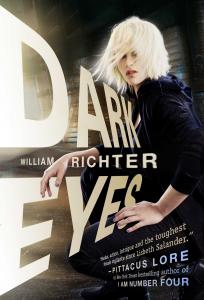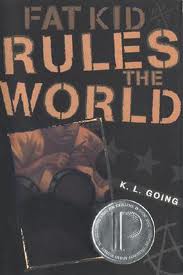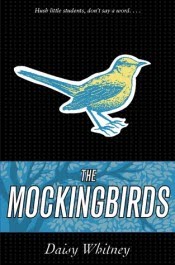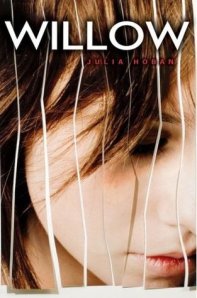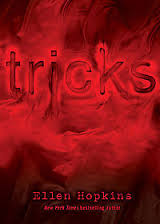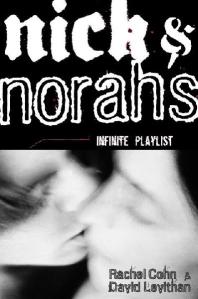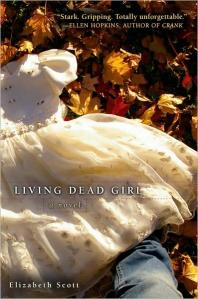Cohen, Joshua C. (2011). Leverage. Dutton Juvenile. ISBN: 9780525423065. 425 pages. $17.99.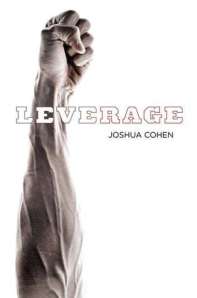
Author Website: http://www.leveragethebook.com/
Reader’s Annotation: The friendship between gymnast Danny and football player Kurt gets pushed to the edge when they both witness an attack on a student.
Summary: What Danny does not have in height, he makes up for in strength. Danny is a gymnast and is one of the best in his event. Kurt is a foster kid who has had a rough childhood. He is now attending Oregrove High where he is welcomed onto the football team thanks to his large size and intimidating facial scars. The two have completely separate lives. There is an ongoing battle between the gymnasts and the footballs players that is constantly escalating. One day Kurt sits in on a gymnast meet and then asks Danny to teach him how to do a back flip so he can do one after a touchdown. After a practice session with Danny and a few of the gymnasts, Kurt leaves. Once he’s gone, three of his football teammates stop by the gym to retaliate against the gymnasts. While Danny is putting away the mats, the football players drag Ronnie, one of the gymnasts into the supply closet where Danny is hidden behind mats. The boys attack Ronnie, not knowing that Danny is hidden in the room. Kurt happens to come back because he left his phone in the gym. He rushes into the closet and intercedes for Ronnie; the event triggering bad memories from his life in his previous foster homes.
No one wants to tell what happened in the closet that day. Ronnie can’t take the pressure of the situation and commits suicide. Now Kurt and Danny share a secret that becomes the groundwork for their unexpected friendship. The question is, will they tell what they know or keep it to themselves?
Reading Level: Grades 8 and up
Interest Level: Grades 10 and up
Review and Evaluation: I wasn’t that excited to read this book. I’m not that interested in sports. I then heard that people thought that Leverage was similar to Raiders Night but better. I really didn’t like Raiders Night at all. My entry on that book explains my reasons. I did like Leverage better as well. I think because it had more of a story to it. I didn’t care for the characters in Raiders Night as much as I did for Danny and Kurt. I wanted them to come forward and tell the truth about the incident. When it got to the end and they finally told the truth, I was so afraid that nothing was going to happen, that Scott, Tom, and Mike were going to get away with it. I felt so relieved when it came out that Tina had broadcasted the entire thing. There was nothing else that they could hide behind. They have to come to terms with what they did.
I also really liked the alternating perspectives. I listened to it on audio and then had two separate narrators for Danny and Kurt. The voices were very distinct, both in the writing and the narration. I don’t think that this could have been as successful if Cohen did not tell this story from both of the perspectives. Danny and Kurt complement each other very well. It is easy to make a comparison between Danny and Kurt’s friend Lamar. Kurt mentions how Danny sometimes reminds him of Lamar. It helps Kurt’s character grow because he is more willing to trust Danny. The camping trip was one of my favorite parts of the book. It’s obvious that Kurt does not fit in well because of his appearance and his stutter. The camping trip gave Kurt an opportunity to be accepted.
The only problem I had with the book was a problem I also had with Raiders Night. There was very little repercussions to the steroid usage. It’s true that at the end, the steroid usage is revealed to everyone, but there is no punishment. Throughout the book, it is just understood that the steroids were there. One of the players mentions that the steroids might be responsible for the mood swings they experience, but I felt like Cohen should have either mentioned more about them or left them out all together.
Subjects/Genres: Bullying, Death, Rape, Realistic Fiction, Sports, Suicide, Toxic Adults, Violence
Bibliotherapeutic Uses: Leverage is a great book for teens who are struggling with bullies. It shows at the end that nothing is worth putting up with and that there are people you can talk to for help.
Controversial Issues:
Rape – The rape scene is fairly graphic and treated by the three football players as inconsequential.
- Defense – While the scene is disturbing, it is important to the story.
Toxic Adults – There are several instances of toxic adults including Crudbucket, Danny’s father, and the football coaches.
- Defense – There are people like these men in the lives of teens today. It is important for the teens to know that there are people they can trust besides men like these.
Language – There is offensive language throughout the book.
- The language adds to the reality of the story. If boys were go so far as to rape a classmate, they would probably also use foul language.
Booktalk Ideas:
What if you had a secret that you couldn’t tell anyone but knew that you should?
Who would win in a test of strength: a gymnast or a football player?
Awards and Booklists:
- Cybils Award Nominee for Young Adult Fiction, 2011
- YALSA Best Fiction for Young Adults (Top Ten), 2012
- Booklist Editors’ Choice Books for Youth: Older Readers Category, 2011
Readalikes:
- Raiders Night by Robert Lipsyte
- The Chocolate War by Robert Cormier
- Blank Confession by Pete Hautman
- Stupid Fast by Geoff Herbach
- Payback Time by Carl Deuker
Professional Reviews:
Kraus, D. (2010). Leverage (book review). Booklist, 15 December 2010.
Staff reviewer (2011). Leverage (book review). Kirkus, 1 February 2011.
Staff reviewer (2010). Leverage (book review). Publishers Weekly, 257 (48).
Why I Chose this Book: Besides being a required title, I chose this book because I heard it was better than Raiders Night and I really didn’t care for that book. I wanted to see if Leverage truly was a better version of a similar story.
